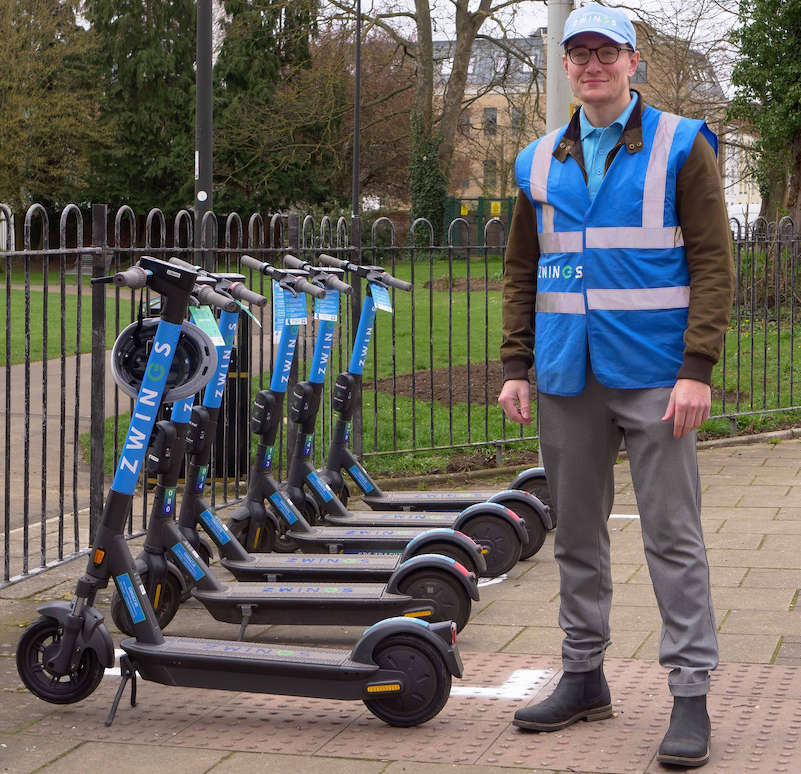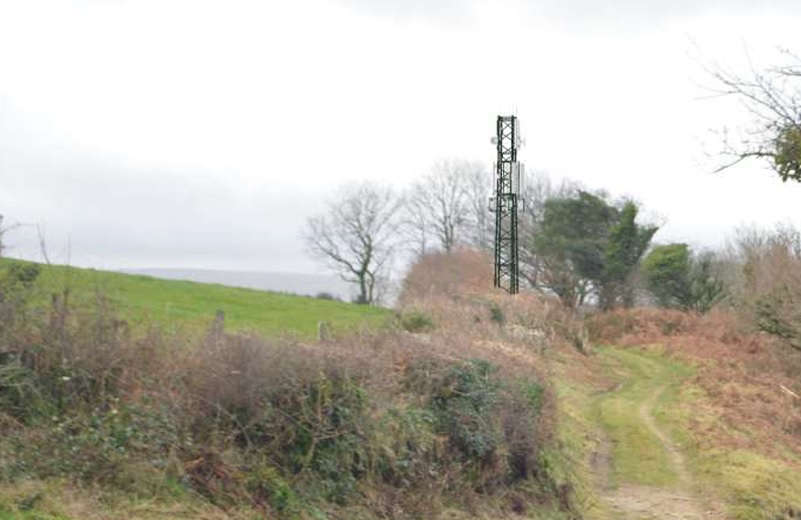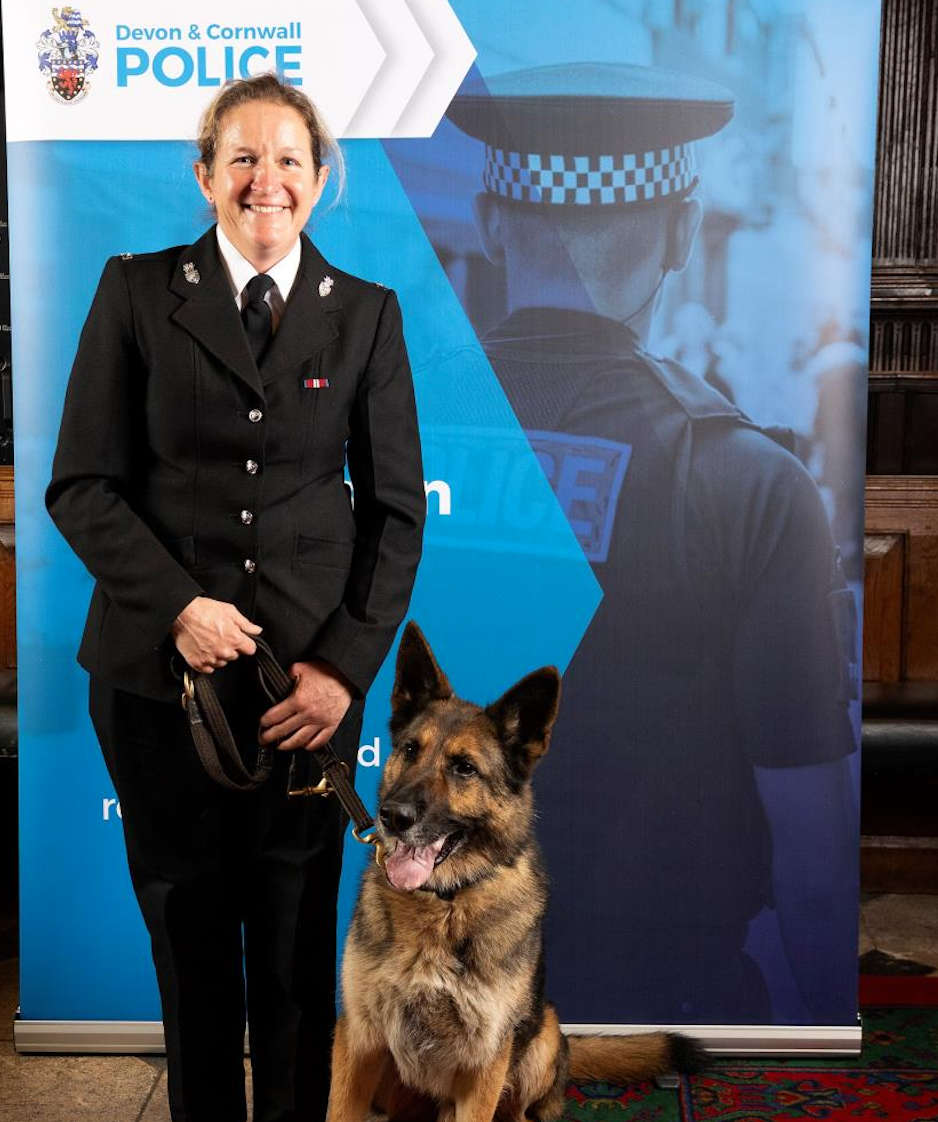
Trial approaching end
Somerset Council has urged the government to legalise e-scooters at the end of an extended trial approaches.
E-scooters, which are currently not legal on the public highway, have been trialled in several Somerset towns since late-2020 in response to the coronavirus pandemic and climate change.
The trial has been extended numerous times to allow the Department for Transport (DfT) to gather as much data as possible before introducing legislation to clarify their legal status.
Somerset Council has now signed an open letter to prime minister Rishi Sunak, calling for urgent action to prevent hundreds of thousands of unusable vehicles being left on UK streets when the trials end in May 2024.
Rental e-scooters are currently only available through government trials in around 23 towns and cities around England; it is illegal to use private e-scooters on public roads.
Trials are currently under way in Minehead, Taunton and Yeovil within the Somerset Council area, with separate trials also taking place in Bath and Bristol.
Chard and Crewkerne were previously part of the initial trial, but withdrew from the process in late-2021 after safety concerns were raised.
The UK is the only developed nation without either permanently legal e-scooters or committed plans to legalise the vehicles.
The council is one of more than 50 signatories of an open letter to the prime minster, urging him and transport secretary Mark Harper MP to push through legislation to create a new powered light vehicle class that would make e-scooters legal.
The other signatories include the Campaign for Better Transport, the walking and cycling charity Sustrans, and e-scooter operators Zipp and Zwings.
The letter states: “Currently e-scooter trials are due to end after May 2024. These trials are ingrained into local transport systems enabling thousands of people to get to work and higher education and to run errands.
“Yet there is no certainty of these trials beyond spring next year nor the ability of additional towns or cities to introduce these services.
“This lack of certainty, combined with the fact an estimated 750,000 privately owned and unregulated e-scooters are on UK roads underscores the importance of e-scooter legislation being included in this year’s King’s Speech.
“Another extension to shared e-scooters does not address private e-scooters. These private vehicles are unlikely to undergo regular maintenance by trained professionals or have government-mandated safety features.
“Private e-scooters can cause concern for road users, particularly disabled people in addition to potentially being unsafe for riders; however, this is where legislation and regulation can make a positive difference.”
Legislation is due to create a new light zero-emission vehicle category to better regulate e-scooters, clarifying issues surrounding insurance, vehicle standards and user requirements (such as road tax).
A poll carried out by e-scooter operator Voi found that more than 80 per cent of the general public are supportive of new regulatory measures for e-scooters – and more 70 per cent want them introduced before the next general election, which must be held by January 2025.
Out of 2,000 respondents aged 18 to 64, nearly 60 per cent of people were ‘very supportive’ or ‘fairly supportive’ of new measures to regulate the use of e-scooters – which rises to 81 per cent when ‘I don’t know’ or ‘neutral’ responses are removed.
Only 14 per cent were ‘not supportive’ or ‘not very supportive’ of the government’s proposed new measures.
The survey also found that 73 per cent of people think the new regulations should be introduced before the next general election, against 13.3 per cent who disagreed.
Support for regulation was clear across all age groups, with 68 per cent of those aged 18-39 and 77 per cent of over-40s agreeing that legislation should be introduced before the next general election.
Additionally, 56 per cent of those surveyed thought the government needed to do more to tackle illegal e-scooter use, versus 26 per cent who felt the government had been effective to date in its enforcement.
Richard Dilks, chief executive of Collaborative Mobility UK, said: “The evidence from the trials is that e-scooters are incredibly popular, with huge demand from users, and the UK has been left as an international outlier by not introducing permanent legality.
“To address the crisis levels of transport emissions in the UK and help people save money amid the cost-of-living crisis, the government can’t delay any further.”
Mike Bell, head of public affairs and campaigns at Thomas Pocklington Trust (a national charity working with blind and partially sighted people) added: “Unregulated and illegal private e-scooters are terrorising visually impaired pedestrians and many other people on our pavements.
“It urgently needs government to act and regulate the market for both private and rental e-scooters in favour of those responsible companies actively building in safety and street etiquette.”
 Dartmoor phone mast gets the go-ahead
Dartmoor phone mast gets the go-ahead
 Livestock processing plant refused at Shebbear
Livestock processing plant refused at Shebbear
 Devoncast - New lives for two Devon landmarks and the mysteries of AI
Devoncast - New lives for two Devon landmarks and the mysteries of AI
 Two Devon warships could be sold to Brazil
Two Devon warships could be sold to Brazil
 Devon police dog honoured
Devon police dog honoured
 Schizophrenic knifeman given indefinite hospital order
Schizophrenic knifeman given indefinite hospital order
